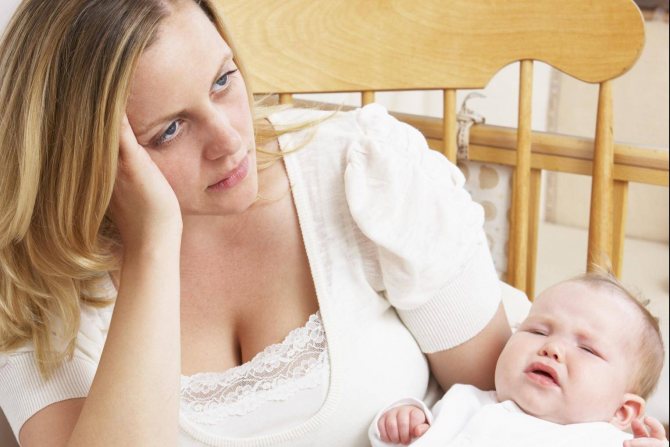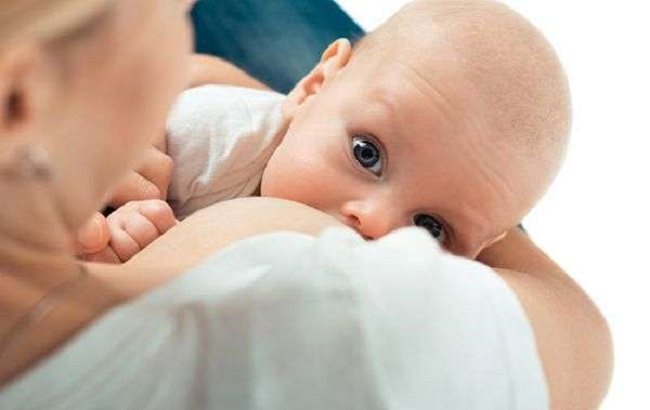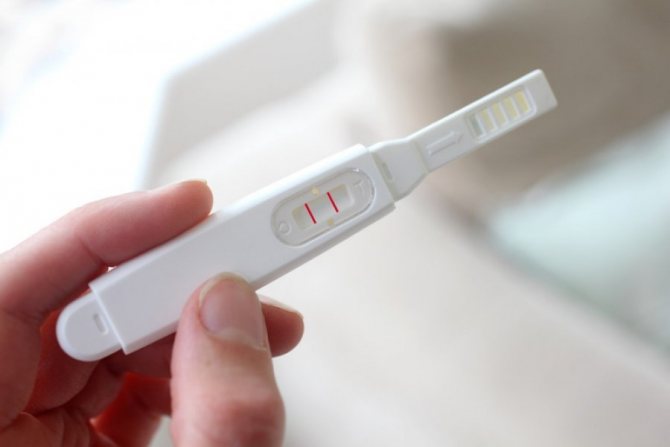After childbirth, the uterus contracts and bleeds, so lochia is released; as it recovers, it develops into prenatal menstruation. Every third woman on the planet faces the problem of an inconsistent menstrual cycle after childbirth while breastfeeding. Menstruation is one of the important phenomena of women's health. It is worth remembering that the body of a woman who has just given birth is tuned to changes that affect all processes of the female body. When the cycle is restored, it changes its time course, with a change in intensity and duration, menstruation becomes painful than before fertilization.
Possible reasons for slow recovery
Irregular periods after childbirth have a special system of complex biochemical reactions. The processes of the cerebral cortex, subcortical center and other organs of the hormonal system change. Responsibility lies with these organs for restoring menstrual function.
The reasons for the appearance of menstruation during breastfeeding are the introduction of complementary foods to the child, irregular feeding or exclusion of night feeding, a combination of breast and artificial feeding
If the process of the cerebral cortex is disrupted, then constant stress, little sleep, and changes in time zones can contribute to this. Improper functioning of the subcortical center of the brain indicates a viral neuroinfection. Also, endocrine organs are disrupted by genetic diseases of the ovaries, functional disorders, and inflammation of the adnexal organs.
The reason for the failure of menstruation may be hidden in the weakening of the body after childbirth, a course that is complicated and deviated from the norm, or an unstandardized vitamin-free diet.
If your periods may not start while breastfeeding, but if this happens, then their irregularity is normal. Only after hormonal levels are restored does the menstrual cycle return to normal
If a woman thinks that she has a delay, then it is worth studying other symptoms on the basis of which to identify deviations. Stay calm, banish all doubts by consulting your gynecologist. The doctor will analyze the cycle disorder and then tell you what to do next.
When does your period come after childbirth?
There is no clear answer to this question. It all depends on how quickly the hormonal levels are restored and the individual characteristics of the woman’s body. With the onset of pregnancy, the expectant mother’s body produces a hormone that blocks the functioning of the ovaries. Further, breastfeeding also produces the hormone prolactin, which also prevents the ovaries from working at full capacity. Ideally, menstruation should be absent for as long as a woman is breastfeeding, but in practice, everything is different for everyone. The production of prolactin is also affected by the frequency of breastfeeding and the amount of milk produced. Therefore, if a woman begins to introduce complementary foods or combine breastfeeding with artificial feeding, this may immediately lead to the onset of menstruation.
If a woman does not breastfeed her baby at all, then her periods begin much earlier, approximately 3-4 months after birth.
Does a caesarean section affect the return of menstruation?
No, it doesn't affect
The body does not care whether a woman gave birth naturally or through a cesarean section. As mentioned above, it's all about hormonal background
What other factors influence the arrival of menstruation after childbirth?
Stress and bad habits (smoking, drinking alcohol, etc.) have a very negative effect on the functioning of the body, which can lead to a very early restoration of menstruation. Accordingly, the quantity and quality of milk produced will decrease, which will affect breastfeeding in general.
Certain medications, complications after childbirth, the diet and lifestyle of the new mother can also affect the arrival of menstruation.
When can you start having sex after childbirth?
For the first four weeks after giving birth, it is better to avoid intimate relationships altogether. Firstly, the woman has not yet stopped secreting lochia. Secondly, she may have a lot of pain from stitches and muscle strains. contractions of the uterus, etc. And thirdly, during this period it is very easy to introduce some kind of infection into the vagina, since the body is very vulnerable.
If, several months after childbirth, the pain from sexual intercourse does not go away, penetration causes discomfort, then you should consult a doctor. Perhaps the reason is cervical erosion or some kind of inflammatory process.
As a rule, the first periods after a long break are very heavy. This should not be scary or alarming. This is simply how the entire reproductive system is “launched.”
You should also not expect that your periods will immediately begin to arrive on time, as before. Some instability - small delays or, conversely, their premature appearance may be present. But within a few months everything should definitely get better, the monthly cycle should stabilize and be regular.
Why do periods become painless after childbirth?
Pain during menstruation in most cases is caused by a bending of the uterus. Childbirth helps the uterus straighten and therefore pain disappears. It happens that this condition can be fixed forever, but it happens that gradually everything returns to normal again. A new pregnancy and childbirth can again help a woman regain painless menstruation and comfort.
Is it possible to get pregnant without menstruation?
We remind you that we are talking about the absence of menstruation after childbirth and during breastfeeding. And the answer here is clear and unconditional: yes, you can get pregnant while taking a break from your period. Despite the absence of discharge, ovulation occurs. Therefore, you need to protect yourself as competently and fully as possible, not to use interrupted sexual intercourse as contraception, and certainly not to calculate “safe” days, which in principle do not exist.
When should you sound the alarm?
- If a year after giving birth or a couple of months after finishing breastfeeding, your periods have not returned, then this is a cause for concern.
- You should also be wary of excessively long discharge of lochia - more than 8 weeks. We wrote above what the color and smell of lochia should be.
- Too heavy periods after childbirth is a reason to visit a gynecologist.
Two months after giving birth, every new mother must undergo a full examination by a gynecologist, undergo all smears and tests to rule out blood stagnation in the uterus, an inflammatory process, the presence of an infection or an unhealed suture, cervical erosion, etc.
Impact of breastfeeding
When menstruation returns after the birth of a child, the female body prepares for a new pregnancy. Sometimes menstruation returns while the mother is still breastfeeding. Then many representatives of the fair sex have a question - how does breastfeeding affect menstruation?

Women who have given birth may notice that during the period of regulation the amount of milk produced decreases. The first phase of the cycle occurs due to the increase in a hormone called progesterone, which blocks prolactin in the body. Prolactin is responsible for lactation qualities and suppresses the origin of ovulation. But when menstruation ends, milk resumes its quantity. So if your periods are irregular after giving birth while breastfeeding, then this is absolutely normal. To maintain the lactation effects of the breast during this time, you must not interrupt breastfeeding. To ensure that your baby gets enough milk, put it to your breast more often.
Causes of heavy periods
The most common causes of heavy menstruation after childbirth:

- Physiological changes
. After childbirth, the organs of the reproductive system, namely the uterus and cervix, undergo physiological changes. Due to the fact that the cervical canal shortens and widens, the uterine cavity increases, and with it the endometrial lining, menstrual flow may be more abundant and longer than usual. - Chronic diseases
. If such problems were present before the onset of labor and were not treated in time, then their consequences may result in a disruption of the monthly cycle, which will manifest itself as heavy menstruation and an irregular cycle. - Diseases of the reproductive system
. Inflammatory processes acquired after childbirth, or as a consequence of birth complications and injuries, can also be accompanied by heavy discharge during the first postpartum menstruation. - Consequence of the birth process
. If childbirth was accompanied by complications, there is a possibility that menstruation in the first months of recovery will be very intense and abundant. - C-section
. Any surgical intervention leaves, in addition to a scar, also consequences that can result in bleeding. A postoperative suture on the uterus disrupts its contractile function and is the basis for the development of endometriosis.
Normal postpartum discharge
After the baby is born, the uterus begins to contract its muscles and blood vessels, which is why discharge appears. The norm of characteristic discharge is 400 ml. Next comes procedural restoration, which lasts 65 days. During this time, the uterus should contract and begin to work in its previous state.

Lochia, although similar to menstruation, is a postpartum discharge that lasts up to 6-8 weeks until the uterus finally heals
The secretions of intrauterine wounds are lochia, which form on the walls of the uterus after the passage of the fetus. It should be noted that as much as there is discharge, so much is required for wound healing.
The first periods after childbirth are normal if they contain:
- Blood clots
- Leukocytes
- Remnant membrane
- Mother tissue
When the blood vessels return to normal and the uterus has returned to its previous state, menstruation should stop a little and change color. Therefore, if the duration is more than the normalized days, then you need to do an unscheduled examination by a gynecologist.
In the first week after giving birth, you should have dark red or brown discharge.
The discharge should be yellowish in color and have an unpleasant odor for the next week
For the next six weeks, menstruation occurs with a light pink tint and small mucus, which are characterized by their scarcity.
Irregularity during hepatitis B
For a non-breastfeeding woman, periods after the birth of a child begin three months later. If the child receives mixed feeding, i.e. If there is milk, but not on demand, then the mothers of such children will begin their periods after 5 months. Whatever method of birth is carried out by doctors, this does not affect the first arrival of menstruation. But, women who have suffered complications (bleeding, sepsis, endometritis) may feel the first signs of menstruation later than normal.
Irregular restoration of menstrual function is a fairly common occurrence. Every second woman in labor faces this problem: periods may come or not, may be delayed for an indefinite number of days, or may come earlier than the previous time. Recovery can take up to six months!

Menstruation and breastfeeding are compatible, there will be less milk, but this is not a reason to stop breastfeeding
The arrival of menstruation
Why are periods irregular during breastfeeding? Mostly young mothers ask this question, since those women who are already raising a child and are expecting a second one know very well what we are talking about here. Since hormonal changes largely depend on the individual physiological characteristics of the body, it is impossible to name the exact timing of the end of this process.
Usually, nature itself provides that it lasts from 1.5 months to a year. The end of the lactation period is accompanied by the removal of the blockage on the production of sex hormones, and as a result the cycle is restored. As practice shows, this happens 2, 3 and even 6 months after the birth of the child.
There is an opinion among people about the influence of methods of delivery on the appearance of menstruation during lactation. This opinion is wrong, as is the dependence on methods of conception. Neither IVF nor cesarean section contributes to the early appearance of menstruation.
Delay
Irregular periods and delay are one and the same phenomenon. The first period normally should occur four months after childbirth. During this period, there are many factors that can change the timing. In order not to be nervous in vain, contact an antenatal clinic, and rule out the following reasons:
- Hormonal imbalance, lack of estrogen in the body
- Ovarian cyst
- Urinary tract infection
- Stress and fatigue
- Gynecological inflammation
- Pelvic neoplasms
The first reason why there may be a delay in menstruation is a new pregnancy, which occurs before the first menstruation and during breastfeeding.
Breastfeeding is not a contraceptive, but you can get pregnant again, so protect yourself with condoms
Reasons for prolonged absence of menstruation after breastfeeding
It is unlikely that anyone will be able to accurately answer the question of when your regular cycle will be restored after weaning your baby. Menstruation is a multi-level process that involves all systems of your body. And if any of them have still not returned to normal after pregnancy and breastfeeding, this will certainly affect the cycle. In 80% of women, their first menstruation begins within 6 weeks after completion of breastfeeding. Experts recommend consulting a doctor if menstruation still has not returned three months after weaning your baby.
Consultation is also necessary if, after the third or fourth cycle, menstruation lasts less than 3 or more than 5 days, the discharge is very scanty (less than 50 ml) or there are large clots in it.
A long delay in menstruation after cessation of lactation can be caused by a number of serious reasons:
- hormonal imbalances in which the release of estrogen is insufficient;
- cystic changes in the ovaries;
- infectious diseases;
- general exhaustion of the body;
- tumors in the uterus and ovaries;
- inflammatory processes of the genital organs.
However, first of all, you need to exclude the possibility of a new pregnancy. It is important not to forget that fertilization occurs during ovulation, which on average occurs 2 weeks before the start of menstruation. Therefore, regardless of whether your menstrual cycle has returned and how regular it is, use protection if you are not ready for a new pregnancy.

In case of prolonged absence of menstruation, the first thing to do is to exclude the possibility of a new pregnancy.
If the pregnancy test is negative and your period does not start, go to the doctor as soon as possible.
How to improve your menstrual cycle after childbirth
It will take a woman’s body a long time to restore her menstrual cycle after childbirth. The following will help restore the reproductive system:
- Maintaining a daily routine and good rest
- The diet should include vegetables and fruits, meat, dairy products
- Correct chronic diseases that were undertreated before pregnancy
A well-formulated, balanced supplement, which should be combined with plenty of fluid, will improve the functioning of a woman’s body. Light physical activity will have a beneficial effect on your psycho-emotional state. Do not take hormonal contraceptives under any circumstances - they increase the imbalance of hormones; it is better to protect yourself with condoms. Normal flow of the menstrual cycle will improve, and the body’s recovery will come only after the end of breastfeeding.
Traditional methods
In order for menstruation to occur regularly, it is necessary to restore the endocrine organ system. Hormonal failure is a change in ovarian function, even excluding pathological forms. Taking infusions and decoctions will help restore the broken cycle.
- Mix in equal quantities radiola rosea, wormwood, anise, viburnum (berries), mantle and thyme. 4 tbsp. l of the crushed mixture, pour into a thermos and pour 500 ml of boiling water. After six hours of infusion, consume 50 ml in the morning and evening. Therapy is carried out for six months.
- To get a decoction to normalize the cycle, use the peel from 1 kg of regular onion. Pour one liter of boiling water and boil until dark in color. Take 100 ml twice a day before meals, half an hour before meals.
Dates enriched with vitamins have a beneficial effect on hormonal levels. They replace sweets, but intake should be limited during lactation. Eating six fruits throughout the month will have a beneficial effect on the organs.
Doctors recommend white honey because it:
- Strengthens the immune system
- Improves the performance of the nervous system
- Balances digestion and hormones
Medicines
You need to understand that medications to cure illness during the lactation period are not 100% safe. Even vitamins that are prescribed during breastfeeding are taken after the doctor’s decision. To cure menstrual disorders, the doctor prescribes medications that contain hormones that are incompatible with breastfeeding. After conducting an appropriate examination, the doctor will prescribe treatment and, if seriously necessary, advise ending lactation.
The female body is unique, so there is no certainty about when the menstrual cycle returns to normal. You need to stop panicking, because you can visit a doctor at any time if you have any concerns.
Postpartum period and resumption of the regular menstrual cycle
The postpartum recovery period lasts on average from 6 to 8 weeks. During this time, the uterus contracts to normal size and restores its epithelium damaged during childbirth. Remains of blood and fetal membranes come out in the form of the so-called. lochia. Menstruation returns only after the end of the recovery period. The speed of recovery of the menstrual cycle depends on many indicators:
- how great is the mother’s hormonal imbalance after pregnancy;
- how the pregnancy proceeded and whether there were any complications during childbirth;
- the general physical and psychological state of the mother;
- whether the baby is on natural, mixed or artificial feeding;
- what chronic diseases does the mother suffer from?
- how well she eats and rests, etc.
If for some reason a woman does not breastfeed her baby, her cycle is restored much faster than that of lactating mothers. Already 2–3 months after the birth of the baby, the first menstrual flow begins. Sometimes the process begins much faster: a month after birth.
If the baby is bottle-fed, the mother's cycle recovers much faster than for mothers who breastfeed. This usually happens almost immediately after the completion of the recovery period - 2-3 months after childbirth. However, there are cases when menstruation began a month after childbirth.
As a rule, after the resumption of menstruation, the cycle may remain irregular for up to six months - the body needs time to restore the normal functioning of all systems. However, if after this period the length of the cycle fluctuates by more than 4-5 days, this is a reason to consult a doctor.
After the birth of a child, the menstrual cycle can change significantly: it can become shorter or longer, painful, or, conversely, it will flow easier. Women who have never experienced mood swings may experience irritability and tearfulness on certain days of the cycle.
A normal menstrual cycle can last from 21 to 35 days, that is, plus or minus a week from the average of 28 days. The duration of menstruation itself can normally range from 2 to 6 days, and the volume of blood lost should be no more than 80 ml.
Dmitry Lubnin
https://www.sovetginekologa.ru/helpful/menstruacii
The resumption of the regularity of the menstrual cycle after the birth of a child is a sign that the female body has fully restored its reproductive function and is again ready to bear a baby.











